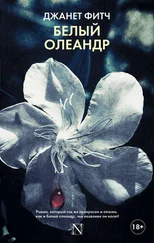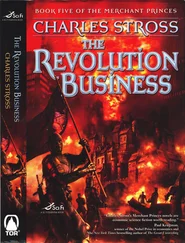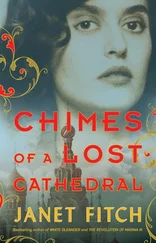“Yes, but they’re artists,” said the proprietor. “You’re pharmacists. Twenty-five rubles.”
I prayed they would argue until dawn. Those brilliant legs in their tights, multiplied by the mirror, formed a flashing kaleidoscope—she was close enough for us to see her little earrings, the pearls dangling. Although the pianist played a complex composition, to my ears cacophonous, she was able to find the line of it, while the audience members talked and watched and drank and cheered and stamped their feet.
Now came our turn to pass the Cerberus of the place, who scanned us with a jaundiced eye. “What have we here? Aren’t you a little young, kiddies?”
“This is Marina Makarova, the poet.” Varvara shoved me forward. “She just had a poem in the Echo .” It was true, though it was in the Children’s Corner.
He rubbed his moustache, tugged at his beard. “Give us a poem then.”
Which poem would open the cave of wonders?
I recited my “Waiting with Pushkin in Mikhailovskaya Square”:
A pigeon picks and pecks
In the poet’s brazen palm.
He weighs it like a merchant.
Which is heavier, my brother?
Your sweet immortal song or the
Living bird that nests upon your hand?
“All right,” said the proprietor. “No drinking. You, sign the book.”
He motioned me toward the Stray Dog register. I eagerly scanned the pages, the names, the names! Blok. Mandelstam. Tsvetaeva. Accompanied by scraps of poetry, little drawings. I signed, and my brother sketched a fast likeness of me underneath, impressing our host despite himself. A harried waiter with a moustache set us up at a tiny table squeezed into a corner by a coatrack.
“Absinthe all around,” Varvara ordered with an imperious sweep of her hand. Knowing I would be forced to pay, if push came to shove, I was grateful when the waiter replied, “Kvas,” that slightly alcoholic brew. But we never did get a bill. We were Artists, even at that age. Superior to the gawkers and tourists.
Seryozha already had his sketchbook open on the table and was furiously drawing, trying to capture everything all at once: patrons, waiters, Karsavina. I did the same in my own way—memorizing, trying to stuff my eyes like a suitcase. Meanwhile, Varvara, unimpressed but pleased with herself, rolled a cigarette and lit it, posing, as Mina waved the smoke away. Sprawled with some other odd characters on stools sat the great Mayakovsky. The futurist poet was unmistakable—enormous, broad-shouldered, ferocious, towering over his friends even while sitting down. But where was his famed yellow blouse? He had dressed simply tonight, disappointingly conventional in a plain jacket, shirt, and tie. My brother was seized with admiration. Turning the page, he rendered the man’s brooding form, his dark brow and heavy jaw, his massive back and profile.
And then I saw her. Anna Andreevna Akhmatova —all those marvelous A s. Like sighs. Her shawl, her profile, the glossy black hair, her fingers gracefully looped into her beads. She sat with the poet Kuzmin, whom I recognized by his sleepy eyes, his thinning hair. On her other side lounged a beauty with golden curls who looked like an actress. She whispered something into Akhmatova’s ear, making her laugh. I was shocked—I hadn’t imagined the Tragic Muse could laugh. She was actually quite lively. I couldn’t stop staring, while my brother’s pencil flew and Mina fidgeted nervously. “We still have those exams, they’re not disappearing.” Varvara pretended she came here every day of the week, sipping her kvas, exhaling smoke.
Now Seryozha was sketching a hulking boy with tawny longish hair who sat by himself in another corner—shapeless jacket, scarf around his neck—watching like a great hungry bear. I’d never seen him before, but recognized one like myself. I knew that hunger. His eyes were only for Vladimir Mayakovsky. His hand went into his pocket every thirty seconds or so, pulled out some pages, put them back in again. Poet.
After Karsavina, the great futurist loped up to the small, curtainless stage. It took him about four steps. I’d read his manifesto: Through us the horn of time blows in the art of the world. The past is too narrow. The Academy and Pushkin are less intelligible than hieroglyphics. Throw Pushkin, Dostoyevsky, Tolstoy etc. overboard from the Ship of Modernity. What an egotist! Throw Pushkin overboard? Pushkin loved freedom more than anybody. Mayakovsky confused me, upset me. I, too, believed in the Future, but this kind of sweeping dismissal frightened me. Secretly it made me feel like I, too, would be thrown from the ship someday. Yet if he thought so, why did he come here? The place was filled with the very artists his futurist manifesto had so viciously attacked. Yet none of them seemed to give it a second thought. That night I realized that poetry was a brotherhood—that you could be furious at your brother and yet enjoy his company more than the company of most.
But Mayakovsky didn’t read polemical work that night. Rather, he recited a long, complex love poem. Now I learned how vulnerable a man could be, even a terrifying man like that, protesting that he was only a cloud in trousers, proclaiming that love could turn his maddened flesh to sweetness. I tried to imagine being the recipient of such a passion. Would it frighten me?
“Look—it’s Vera Kholodnaya,” Mina whispered. Suddenly her fretting about the exams and her parents was forgotten as she watched the star of our silent kinofilm taking a seat near the stage. The most famous woman in Russia after the empress herself. The actress watched the poet, enraptured, and I saw that unconsciously, Mina sat up straighter, held her head more gracefully.
Next, an improvised play unfolded, the actors making fun of the gentlemen who’d paid their good money to see Karsavina and the immortal poets bestow their gifts—the so-called pharmacists. Two of them came to the stage to play soldiers in foxholes, and everyone laughed, including the men themselves. No hard feelings.
After the skit, she took the stage, her shawl wrapped about her, her long white hands, the grave white face. The voice that emerged from her lips was like that of a cello, a medium, and sent shivers through the audience. I had hoped she would recite her poem about this very place—“We Are All Carousers and Harlots”—but instead she recited poems about the war in a voice like time itself:
Give me bitter years of fever,
Choking, sleepless suffering,
Take away my child, my lover,
My mysterious gift of song—
Thus I pray after Thy Service,
After many anguished days,
So that clouds which darken Russia
May be lit by glorious rays.
Such bravery—to offer Fate such a sacrifice. To give anything, even her lover, even her gift. I would never have had the nerve to tempt the gods that way. I was too greedy. My sticky-handed heart wanted everything—lovers, lyres, and laurel wreaths. Why did she have to show me the impossible heights? Her words tore my soul to shreds. The whole assembly, even Mayakovsky, thundered their applause as she returned to her seat, flinging appreciative shouts like garlands. Then she turned back into her other self, laughing and relaxed, as if she hadn’t just dared heaven to destroy her.
Gathering myself while I still had the courage, I wove my way to her table and stood before her. No sound would come from my mouth. Her eyes were very blue—blue and full of light. I’d thought they were brown. I managed to say, “These are for you,” and thrust out a fistful of carefully copied-out poems.
She considered me and my outstretched offering, her arm resting across the banquette behind her friend. Her eyes were mischievous and gay. “Recite one for me.”
Читать дальше












